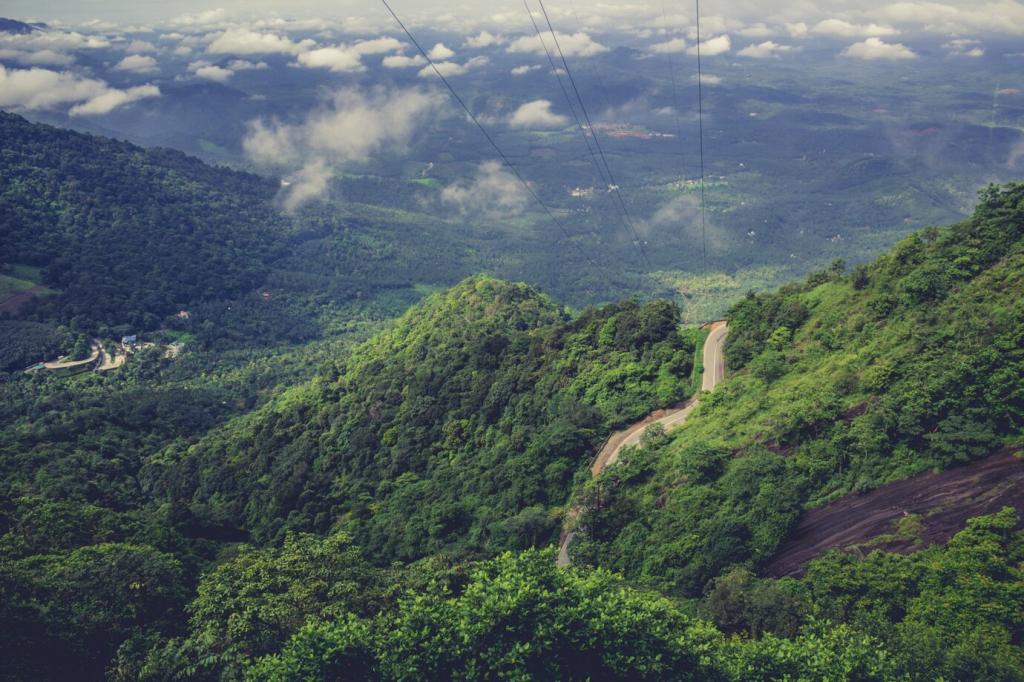Traveling with sustainability in mind is more important than ever. Eco-friendly travel destinations offer a chance to experience breathtaking scenery, authentic cultures, and innovative green initiatives—all without sacrificing your commitment to protecting the planet. Whether you’re drawn to pristine beaches, thriving cities, or tranquil countryside, the world has a wealth of responsible destinations that beautifully balance tourism and environmental stewardship. Discover how you can be a more conscious traveler by choosing places that preserve nature, empower local communities, and pave the way for a brighter, greener future.

The Magic of Costa Rica’s Rainforests
Costa Rica is a global leader in eco-tourism, boasting extensive rainforests teeming with biodiversity. The country’s commitment to conservation is apparent in places like Monteverde Cloud Forest Reserve and Tortuguero National Park, where sustainability practices are integrated into every aspect of the visitor experience. Explore guided hikes that support local education initiatives, spot rare wildlife such as the resplendent quetzal or green sea turtles, and stay in ecolodges designed to minimize environmental impact. Costa Rica’s embrace of renewable energy and reforestation programs further cements its status as a model destination for green travel, making every journey here both enriching and responsible.

Exploring New Zealand’s Conservation Parks
New Zealand’s breathtaking conservation parks are testaments to the country’s dedication to preserving natural beauty while fostering responsible tourism. Vast stretches of pristine wilderness, from the ancient rainforests of Fiordland to the geothermal wonders of Tongariro, are meticulously protected by national and local efforts. Visitors can walk along well-maintained trails, participate in citizen science projects, and engage with Māori communities who advocate for sustainable land stewardship. From electric boats on serene lakes to lodges powered by renewable resources, New Zealand invites travelers to experience unspoiled landscapes while actively contributing to the wellbeing of its environment and people.

Sweden’s Archipelago Adventures
Sweden’s expansive archipelago offers a unique fusion of natural wonder and progressive sustainability. The islands, spread along the Baltic coast, emphasize clean energy, waste reduction, and conservation of fragile marine ecosystems. Ferries powered by alternative fuels, zero-waste seaside cabins, and organic local cuisine are seamlessly woven into the visitor experience. Opportunities abound for eco-friendly kayaking, bird watching, and cycling through the serene landscape. Sweden’s commitment to the “Allemansrätten” or Right of Public Access, ensures that visitors can responsibly enjoy the wilderness while respecting local customs and maintaining the delicate balance of the islands’ environment.
Urban Green Escapes

Copenhagen: Europe’s Green Capital
Copenhagen consistently ranks among the world’s most sustainable cities, thanks to extensive bike networks, renewable energy use, and widespread green initiatives. Visitors are encouraged to join the city’s cycling culture, with rental bikes readily available and well-marked routes spanning urban and coastal neighborhoods. Rooftop gardens, farm-to-table dining, and hotels powered by wind energy set new standards for sustainable hospitality. The city’s harbor, once heavily polluted, is now clean enough for swimming—a symbol of Copenhagen’s environmental turnaround. From exploring historic castles to enjoying eco-conscious nightlife, visiting Denmark’s capital means supporting a city dedicated to reducing its carbon footprint and shaping a greener urban future.

Singapore’s Garden City Innovations
Singapore is renowned for transforming itself into a “City in a Garden,” blending green spaces and urban infrastructure in remarkable harmony. Thoughtful city planning has led to iconic projects like Gardens by the Bay and the extensive Southern Ridges park system, creating lush, accessible oases amid skyscrapers. The city’s commitment to green architecture is evident in numerous energy-efficient hotels and buildings adorned with living walls and rooftop farms. Smart water management and waste reduction programs further reinforce Singapore’s eco-friendly identity. For travelers, exploring the city’s sustainable food scene and participating in local environmental programs offers a chance to enjoy vibrant urban life with minimal ecological impact.

Portland’s Urban Sustainability Movement
Portland, Oregon, stands out in North America for its grassroots commitment to environmentalism and sustainable urban living. The city is home to an extensive network of cycling and walking paths, local farmers’ markets, and a thriving culture of green innovation. Community gardens and expansive parks, such as Forest Park and the Portland Japanese Garden, encourage residents and visitors alike to connect with nature close to the urban core. Eco-friendly accommodations, accessible public transport, and a strong zero-waste ethos make Portland a frontrunner for responsible travel. The city’s emphasis on solar energy, green buildings, and support for local artisans and organic producers shows just how urban destinations can thrive while protecting the planet.
Eco-Lodges and Responsible Accommodations
Tanzania’s Wildlife Conservancy Lodges
Tanzania’s eco-lodges set in vast wildlife conservancies provide guests with an authentic safari experience while prioritizing the wellbeing of animals and habitats. Many lodges operate on solar power, employ local staff, and reinvest a portion of profits into community education and conservation projects. Responsible game drives are conducted with minimal disturbance to wildlife, and water conservation practices are strictly observed. Guests can participate in guided nature walks led by local conservationists, learning firsthand about the challenges and successes of sustainable wildlife management. By staying at these lodges, travelers directly support efforts to combat poaching, preserve endangered species, and foster relationships between local people and the natural world.
The Eco Retreats of the Galápagos Islands
The Galápagos Islands offer a rare opportunity to experience biodiversity and geology unaffected by mass tourism, thanks in large part to tightly regulated eco-lodges. These accommodations are built using local, sustainable materials and employ rigorous energy-saving measures, such as solar panels and rainwater harvesting. Strict guest limits and guided tours ensure that the delicate ecosystems remain undisturbed. Lodges work closely with the local community and conservation authorities to manage waste, protect native wildlife, and run education programs for both visitors and residents. Staying in these eco retreats allows travelers to immerse themselves in the wonders of the Galápagos while safeguarding its future for generations to come.
Bali’s Community-Driven Eco Resorts
Bali’s growing collection of eco resorts demonstrates how local culture and sustainability can flourish together. These properties are often constructed from locally sourced, renewable materials and designed using traditional Balinese architecture. Organic gardens, zero-waste kitchens, and natural pools offer low-impact comfort, while programs for guests include volunteering opportunities and lessons in traditional crafts. Many eco resorts engage with nearby villages to provide fair wages, apprenticeship programs, and educational resources, ensuring that tourism brings genuine benefits to communities. As a traveler, choosing a Bali eco resort means enjoying luxurious surroundings and rich cultural experiences, all underpinned by a commitment to protecting Bali’s natural beauty and heritage.
